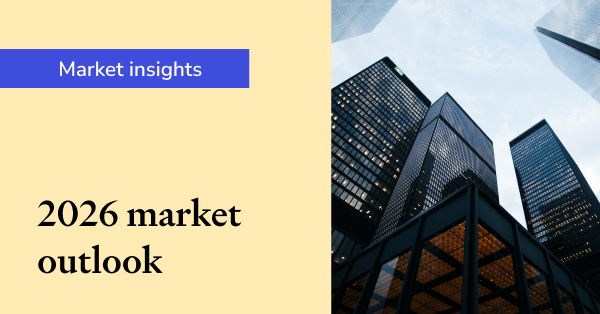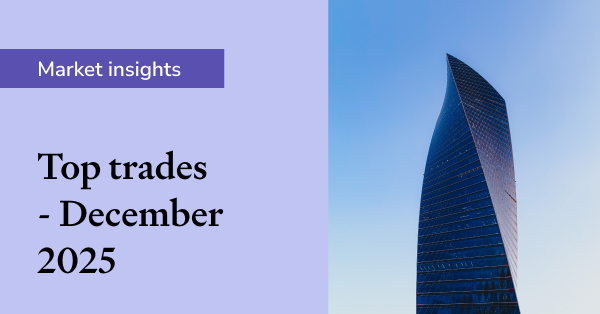Investors need to break these 5 bad habits in 2018
According to a recent study, 80% of New Year’s resolutions will have failed by mid-February. The main reason? Proposing huge transformations, rather than committing to smaller (achievable) changes. In keeping that in mind, here are 5 small (but impactful) bad investing habits that you can easily overcome this year:
#1 -- Tracking portfolios with spreadsheets
There are apps to plan your next ride, your next sofa, and even your next beer. So why aren’t you using a dedicated portfolio tracker to manage your most important assets? Don’t get us wrong -- spreadsheets are great for a lot of things. But there are many reasons why you shouldn’t rely on one to track your investment portfolio. They include missing-out on things like automatic corporate actions, benchmarking and asset allocation reporting. The bottom-line is that if you’re still tinkering with (and trying to maintain) a stale spreadsheet, you’re missing-out on some serious portfolio insights.

#2 -- Ignoring dividends
If you own dividend stocks, you need to start tracking your dividends in order to fully understand how you’re performing. For example, if you bought General Motors (GM.NYS) on January 1st 2017 and referred only to the stock price, you’d think you were up 17.65% at the end of the year. But if you go back and factor-in the dividends that were paid-out, it’s actually 22.01% -- a difference of nearly 5%! Dividends not only impact your performance returns and cash you receive (or additional stocks you purchase via dividend reinvestment plans), but there are tax implications as well. For more info, check out the 3 reasons why you need to be tracking dividends.

#3 -- Under/overestimating performance
When many investors consider their portfolio performance, they calculate the difference between what they paid for the stock, and what it’s worth now. This is referred to as a simple return, and it’s misleading because it doesn’t explain how they’re performing year-over-year. To put it in context, a 15% return over 5 years means you’re really just averaging 3% per year. To understand how you’re really doing, you should use a portfolio tracker that automatically calculates your annualised performance using a money-weighted rate of return. Knowing how you’re actually doing provides peace-of-mind and lets you act accordingly.
#4 -- Trusting broker performance figures
If you’re relying on your broker’s performance reports, then you’re also missing the full picture. That’s because they often fail to incorporate the impact of things like brokerage fees, currency effects, dividends, dividend reinvestment plans, holding periods, and corporate actions. Even just one of these events can have a significant impact on your bottom-line. For example, here’s a real-life story of how an unreported share split made an investor think she was down -47.73%, when she was really up nearly 5%.
#5 -- Relying on watchlists
Google’s late 2017 decision to shut-down its portfolio tracking feature saw investors from around the world scramble to find an alternative portfolio tracker. However, as we’ve been saying for years, watchlists such as Google Finance and Yahoo Finance are not built with long-term portfolio tracking in mind. They’re missing crucial components (such as dividends and annualised performance) which are essential to properly calculating your total returns. And because they’re often considered fringe features within large media behemoths, they’re always under threat of being discontinued (Google RSS Reader, anyone?)
The one good thing about most watchlists is that it’s easy to download them (at least for now) and upload them to a dedicated portfolio tracker:
Replace these bad habits with one comprehensive solution
Join the thousands of investors around the world already using Sharesight to track their investment portfolios. To get started for FREE, simply sign-up and import your holdings. Then watch as corporate actions such as dividends and stock splits are automatically incorporated. And there’s even a handy mobile app that lets you track your portfolio on the go!

FURTHER READING

Sharesight product updates – January 2026
Our latest updates include Abu Dhabi exchange support, enhanced dividend insights, overview page refinements, mobile app improvements and more.

2026 market outlook: Expert insights on risks, rates and opportunities
We talk to industry experts about their expectations for markets in 2026 — from inflation and interest rates to market opportunities, the AI bubble and more.

Sharesight users' top trades – December 2025
Welcome to the December 2025 edition of Sharesight’s monthly trading snapshot, where we look at the top buy and sell trades by Sharesight users over the month.